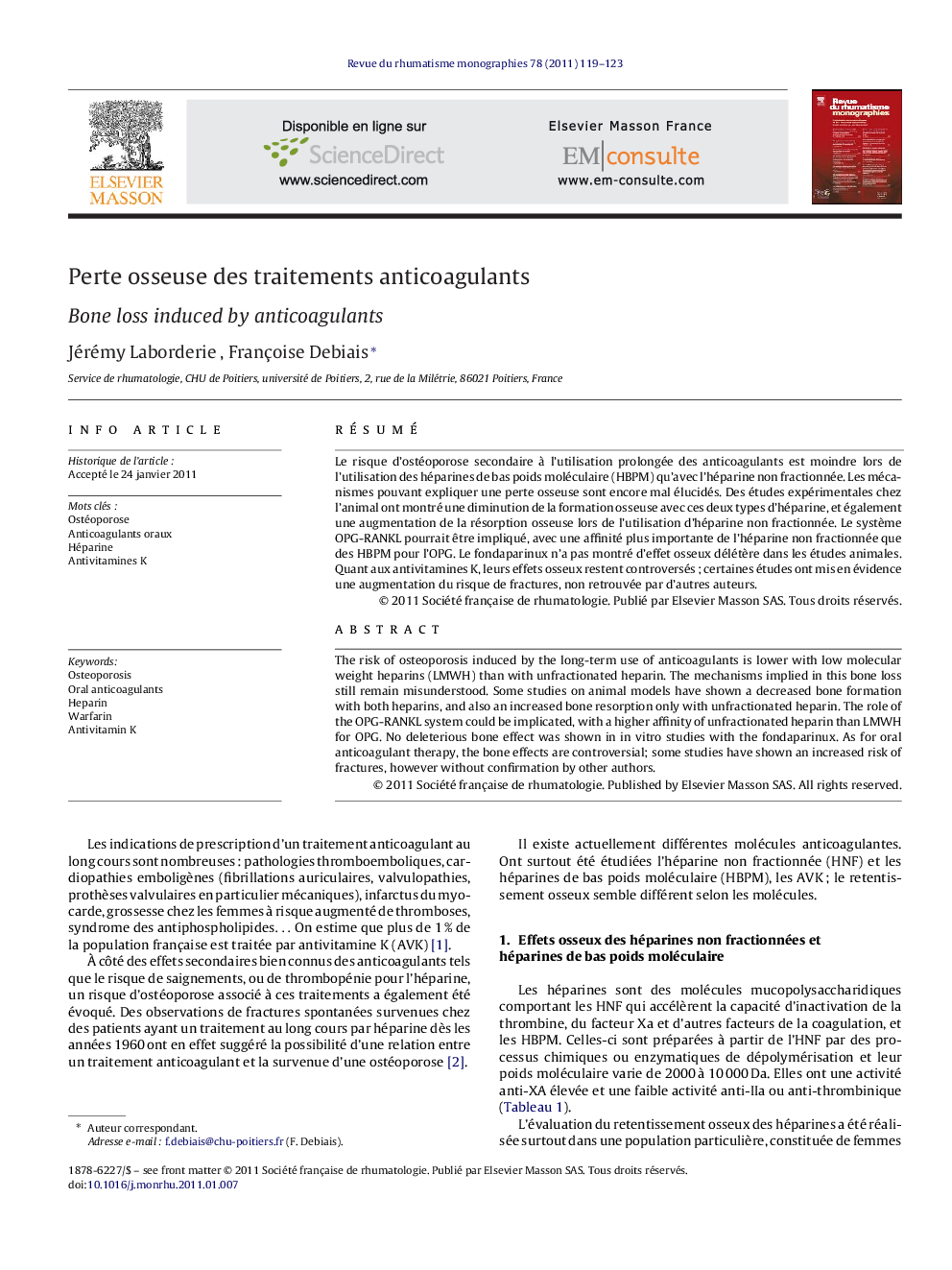| Article ID | Journal | Published Year | Pages | File Type |
|---|---|---|---|---|
| 3389997 | Revue du Rhumatisme Monographies | 2011 | 5 Pages |
Abstract
The risk of osteoporosis induced by the long-term use of anticoagulants is lower with low molecular weight heparins (LMWH) than with unfractionated heparin. The mechanisms implied in this bone loss still remain misunderstood. Some studies on animal models have shown a decreased bone formation with both heparins, and also an increased bone resorption only with unfractionated heparin. The role of the OPG-RANKL system could be implicated, with a higher affinity of unfractionated heparin than LMWH for OPG. No deleterious bone effect was shown in in vitro studies with the fondaparinux. As for oral anticoagulant therapy, the bone effects are controversial; some studies have shown an increased risk of fractures, however without confirmation by other authors.
Keywords
Related Topics
Health Sciences
Medicine and Dentistry
Immunology, Allergology and Rheumatology
Authors
Jérémy Laborderie, Françoise Debiais,
